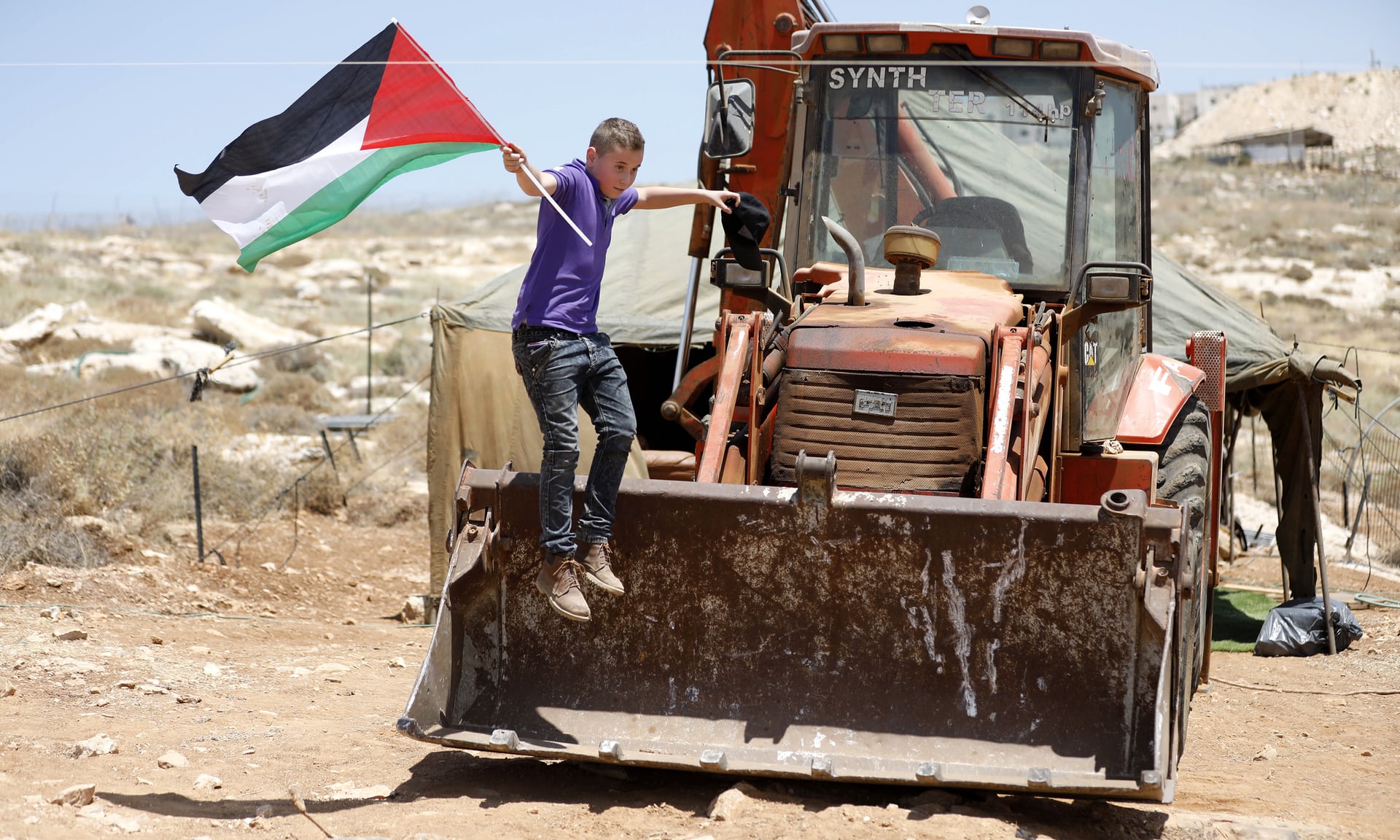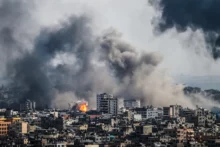We’re patriotic citizens but are horrified by the escalating tensions in our country: we fear for those who live here
Ilana Hammerman and David Harel
Published on June 29, 2018 on the Website of the Guardian.

The state of Israel is facing a catastrophic situation, which could, alarmingly soon, lead to extensive bloodshed. It is time for the international community to act decisively. Substantive external pressure – political, economic and cultural – offers the only chance of emerging from this impossible situation before it is too late. Not a sweeping BDS-style boycott of the country, but diverse, carefully crafted, acts of pressure.
We represent a group of intellectuals and cultural figures central to Israeli society, several of whom are world renowned in their fields. We are patriotic Israeli citizens who love our country and who contribute tirelessly to Israeli science and culture, and to that of the world at large. We fully intend to stay here and continue to contribute, but we are horrified by the situation and fear deeply for our lives and those of our offspring, and for the lives of the 13 million Jews and Arabs who live here and who have no other homeland.
The decision to direct our plea to the outside world is not taken lightly, and we do so with a heavy heart. The pressure we believe is needed must come from governments and parliaments, of course, but also from civil society, individuals and establishments. Ever since 1967, not a single Israeli government has put a stop to the expansion of settlements in the occupied West Bank. Moreover, in recent years, the official and openly stated ideological policy of the elected Israeli government has it that this land, from the Mediterranean to the Jordan river, belongs in its entirety to the Jewish people, wherever they may be.
In the spirit of this ideology, the processes involving oppression, expulsion and ethnic cleansing of the Palestinians living in the West Bank are broadening and deepening. This includes Jerusalem, too, which was annexed by Israel in 1967, and the borderlines of which extend almost from Bethlehem in the south to Ramallah in the north. Israeli courts are in the process of legitimising the destruction of entire villages, and the Knesset is passing new laws that steadily decrease the ability of the courts to have a say at all. Others legitimise the additional expropriation of private Palestinian land in favour of the settlements built on them. These acts of one-sided expropriation violate those parts of international law that protect civilians of occupied territories, and some are even in violation of Israeli law.
For years the international community has been talking about a solution based on separate Israeli and Palestinian states coexisting in peace and security. But current Israeli policy renders this impossible. During the 51 years of military rule on the West Bank, Israel has taken over large quantities of land, and has placed around 600,000 Israeli citizens there in hundreds of settlements. It supplies them with roads, water and electricity, has built and financed their health, education and cultural institutions, and has given them the same civil and political rights enjoyed by citizens residing within its sovereign territory.
In contrast, Israel is squeezing the living space of Palestinian residents, who enjoy no civil or political rights. With the aid of laws, special regulations and military orders it shuts them out of the areas it has allotted to its citizens and for its military training activities. It delineates and then expropriates their private and public land on the basis of rules it sets down for the sole benefit of its own citizens. It confines their villages by surrounding them with fences and barriers, destroys houses and refuses to allow them to expand; it imposes collective punishments, detains thousands of men, women and minors, tries them in a military court system and imprisons them in its sovereign territory.
Since all these actions are being carried out in violation of international law, the resulting situation is no longer just an internal Israeli issue. The institutions of the international community have taken many decisions intended to curb these actions, but none has ever been accompanied by enforcement mechanisms.
And so a destructive, violent and explosive reality is becoming the norm in these areas. We, who are located in the midst of this reality, believe the international community must help, since that community alone is responsible for enforcing compliance with its treaties and with the decisions of its institutions, and since in the current circumstances only it can do so.
Never have these issues been as clear cut and as urgent as they are today: if peace is not established in this part of the world very soon, an area that has become a timebomb of national and religious tensions, there will be no future and no life for us or the Palestinians.
Ilana Hammerman is an Israeli writer and translator. David Harel is vice-president of the Israel Academy of Sciences and Humanities.







